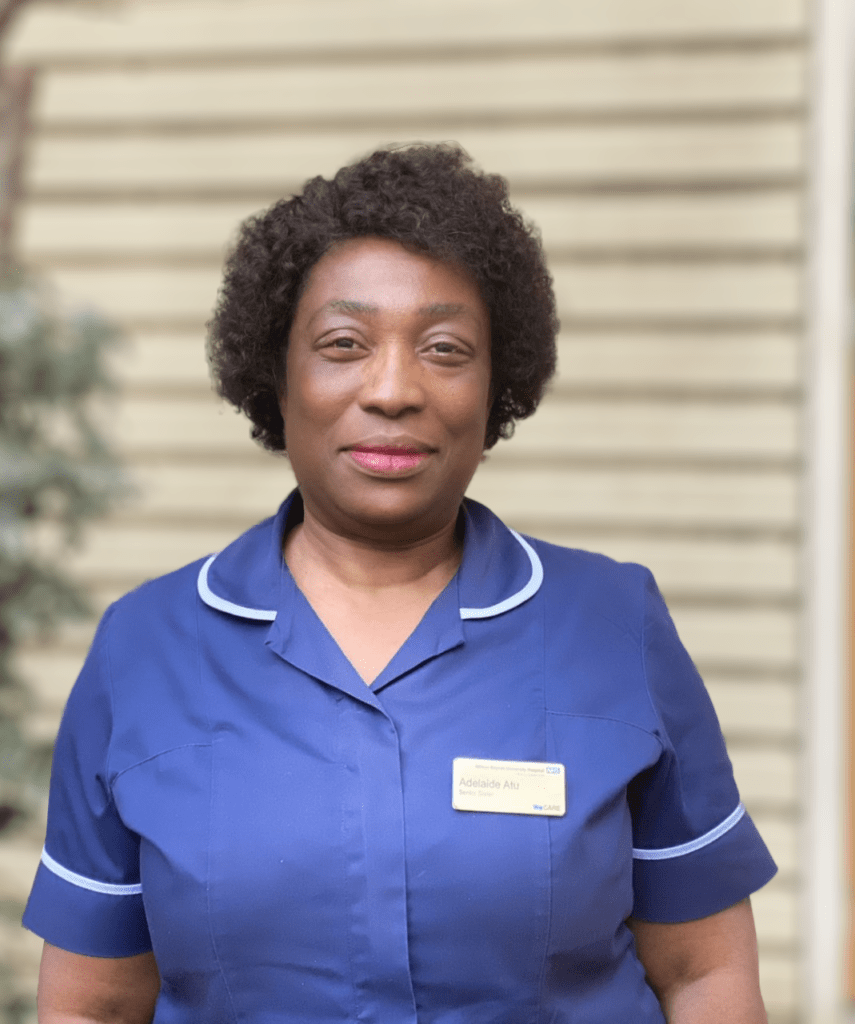Now in its third year, the ‘We are the NHS’ campaign is back to celebrate the extraordinary work of NHS staff in over 350 roles including nurses, allied health professionals and healthcare support workers and to inspire a new cohort to consider a career in the health service.
Recruitment for the NHS has never been more vital. The professionalism and dedication staff have shown throughout the pandemic has generated unprecedented interest in joining the NHS while the demands of contending with coronavirus while keeping other services running means recruitment has never been more crucial. ‘We are the NHS’ shines a light on some of the most in-demand roles in the NHS; all varied, exciting and challenging in equal measures.
Adelaide Atu, Senior Sister and Ward Manager at Milton Keynes University Hospital, knows only too well the importance of compassion for patients and colleagues alike. Leading a team of 34 staff, Adelaide is passionate about being a mentor, a source of inspiration and support to her colleagues.
Talking about her role, Adelaide says: “As a Senior Sister, it’s my job to ensure that patients are being cared for and that my team is being nurtured. I enjoy leading by example and despite having many responsibilities in the day-to-day running of the ward, I’m always mindful of the fact that nurses in the NHS touch lives at times of basic human need, when care and compassion are what matter most – that’s why the place I enjoy being in most is the ward with patients.”
Talking about life as a nurse, Adelaide says: “Many people do not realise the range of intellectually challenging work that is undertaken as an NHS nurse, including performance of some medical procedures, clinical research and education and treatment plans for patients. Furthermore, nurses have the opportunity to specialise in a broad range of roles across all areas of the NHS, including: learning disabilities, mental health, primary care and community care for instance.”
Reflecting on her community’s views of the nursing profession, Adelaide says: “Whilst there is a lot of love and respect for the nursing profession within the African community, I think some people are put off because of concerns of a lack of career progression and ideas that black nurses face challenges in this realm. I can truly say from my own experience that this is only hearsay, that the reality is that if you work hard, show a genuine interest and passion in your job and demonstrate initiative, doors will be open. It’s true that there are less people from minority backgrounds in management positions, however, it’s only by more black and minority ethnic people entering the profession that we can affect change from within.”
Indeed, Adelaide, who is from an African background has had a varied and interesting career which has seen her work in a range of fields including midwifery, trauma and orthopaedics, she’s taken advantage of specialist opportunities along the way and is now in a senior management position.
Talking specifically about her family’s view of her career choices, Adelaide comments: “My family are very proud and encouraging of my achievements so far, in fact many of my siblings are also in the medical profession.”
Talking directly to people from the black community who are considering a career in nursing, Adelaide says: “If you are keen to make a positive difference to peoples’ lives, if you want a career with real job satisfaction and if you want a varied, rewarding and challenging career, nursing could well be for you.”
This year, candidates for university courses relevant for nursing have access to a support system to guide them step by step through the application process, alongside tailored support. Furthermore, grants of between £5,000 to £8,000 are available.
Search ‘NHS Careers’ or visit www.nhs.uk/nursing-careers for more information and to find out about the range of nursing roles available within the NHS.



